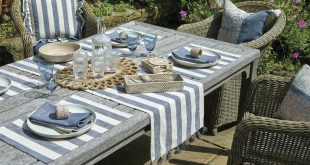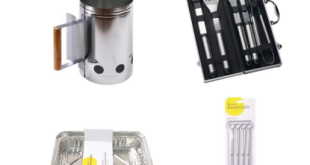 The safety and security of seniors, children and the disabled in their homes were key issues addressed by winning entries in the 26th annual Student Design Competition run by the International Housewares Association (IHA).
The safety and security of seniors, children and the disabled in their homes were key issues addressed by winning entries in the 26th annual Student Design Competition run by the International Housewares Association (IHA).
The contest challenged college students to redesign a current housewares product to meet the needs of the future, or to create a concept for a new product. Winning projects were selected for their innovation, understanding of production and marketing principles, and quality of entry materials by a jury of 14.
The panel included design managers at consumer products companies, a major retailer, design consultants, three educators and four former winners. Altogether, judges spend hundreds of volunteer hours reviewing the submissions, which consisted of written materials, sketches, engineering drawings and photos.
Purdue University senior Hannah Ferrill and National University of Singapore graduate Kevin Chiam Yong Sheng shared joint first place for the HearNoEvil Home Security System for the hearing impaired, and Folks Kitchenware for the blind respectively.
HearNoEvil connects to the household security system through WiFi or Bluetooth, and uses coloured lights that project alerts on the ceiling and a bed shaker to alert the hearing-impaired to intruders, fires and natural disasters. The unit also doubles as a wireless, rechargeable hearing aid station, so users never have to fumble with small batteries at night.
Judge Daniel Blake said: “After all the entries were reviewed, HearNoEvil just naturally rose to the top as one of the most complete product concepts submitted. It fits current trends in the connected home market by identifying a product that is easy to use, solves multiple issues, is readily available in terms of technology, and also leaves the opportunity for expansion of product functions.”
Folks Kitchenware for the blind aims to leverage natural, sensory feedback and tactile cues to empower visually impaired individuals to enjoy cooking, while preserving their dignity and self-reliance. The knife features a retractable guard which serves as a physical anchor, guides the fingers during the cutting process and allows clean-up of the knife with a simple trigger.
The set also includes a chopping board with a side tray that acts as an extension of the hand to gather and efficiently transfer ingredients with less spillage, and a teaspoon with an integrated buoy. When placed in a cup of liquids, the floating buoy informs the user of impending contact with liquids and helps lower the risk of scalds or burns.
Judge Carter Gerard said Folks defined a unique problem within a specific user group and executed a realistic and simple solution. “Through multiple rounds of sketches and prototypes, the designer was able to show his decision-making process for the final design and validate his concept with visually impaired and ‘expert’ users such as an occupational therapist,” Carter said. “Overall, the judges were confident in the design solution and final impact that this product would have on its intended user group.”
First place winners received a $2,500 cash prize and an all-expenses paid trip to the four-day 2019 International Home + Housewares Show, which runs until tomorrow (March 5) at McCormick Place in Chicago. Their winning products are on display at the event and will potentially be seen by 60,000 attendees and 2,200 exhibiting companies from more than 145 countries.
Joining Hannah and Kevin are two second- and two third-place winners who will share $5,500 in prize money.
Second-place awards of $1,750 each went to: Paola Gonzalez, a University of Houston graduate, for Munch: a kid’s educational cooking set, and Andrea Meisner, a University of Wisconsin-Stout senior for the Pudge Hot Sandwich Maker for outdoor cooking.
Munch is a cooking set that encourages children aged 5 to 10 to be involved in cooking. When a child selects a tool from the cutting board/storage container, its form reveals visual cues that guide the child to hold it safely and use it properly. Pictograms on the container’s base teach cooking measurements and cutting techniques. Once a child is done with cooking prep, he or she can clean up and return the tool to its puzzle piece holder.
Pudge is a cookware set that integrates compact design, versatility, injury-preventative features and user-friendly features to make it safer for families to cook traditional hot sandwiches (pudgie pies) and roast marshmallows over a campfire.
Third-place awards of $1,000 each went to Teaghan Stack, a University of Notre Dame senior, for the Brim Garden Bucket Support and Jack Judge, a Purdue University senior, for the Sera Childproof Locking Pill Organizer.
Brim is aimed at Boomers who still want a yard or garden regardless of where they live. The stable base attaches to any standard five-gallon bucket and allows those with limited mobility to lean on the bucket for support when standing up from a kneeling position after weeding or doing other yard work. Handles in the base allow the user to easily pour out the bucket’s contents in a controlled and comfortable manner.
A new take on child-resistant containers, Sera addresses the problem of accidental poisoning from medications at home or grandma’s house. The pill organizer features a simple mechanism with two latches that are shielded inside a cavity towards the back. Only adult-length fingers are long enough to reach in and press the buttons simultaneously to open the pill box.
Six students received an honourable mention and a $300 cash award. They are: Mia Dragičević and Sara Dobrijević, juniors at the University of Zagreb (Croatia) for their Period. Sustainable Sanitary Feminine Hygiene System; Mark Dorsey and Vann Knight, Auburn University seniors, for the Trash Waste Reduction Motivation System; Harry Kaloustian, College for Creative Studies sophomore for the Resonate Fire Extinguisher; Hung Savio Dominic Duong, James Madison University senior, for the Mariposa Convertible Table; Nicholas Azar, University of Notre Dame senior, for the Handi Sink Access Solutions and Eric Yushi Nakassa, University of Washington junior, for the Seicho Hanging Planter.
Altogether, there were 280 entries from 45 schools in the US and 18 other countries. Vicki Matranga, IHA’s design programs co-ordinator and manager of the Student Design Competition, said: “IHA’s program has become known as the gold standard for college-level competitions. Many US professors – and an increasing number internationally – assign the programme annually to industrial design students because it is a real-world exercise and every entry receives feedback from two industry professionals. Students must identify user needs and opportunity spaces in the marketplace, research competitive available products, test models with users and consider production issues.”
Joint first place winner: Folks Kitchenware
 Housewares Business-to-business magazine for housewares retailers and their suppliers
Housewares Business-to-business magazine for housewares retailers and their suppliers



